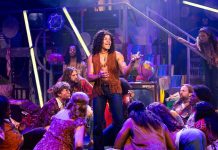By LeeAnét Noble and Lauretta Malloy (guided by love, ancestors, and the thoughts of many)
Mkurugenzi

Swahili for the director
The stage is dimly lit with only the ghost light flickering in space. The curtains are open baring the brick wall upstage that one rarely sees when partaking in the richness of the world behind the fourth wall.
A quiet yet firm voice that cannot be ignored calls out “5, 6, 7, 8” and everything comes to life. That voice is a formidable choreographer, director, and visionary named Alvan D. Malone, fondly known as Mike to all who meet him. With script in hand, he shifts the words on the page into dialogue on stage. Actors enter and exit with a new confidence, they find passion in his passion, objectives in his vision. Dancers jeté and pirouette with new energy as he calls out each moment and movement with ease. He doesn’t hesitate to correct a note or movement; the quality of the craft must ignite the soul.
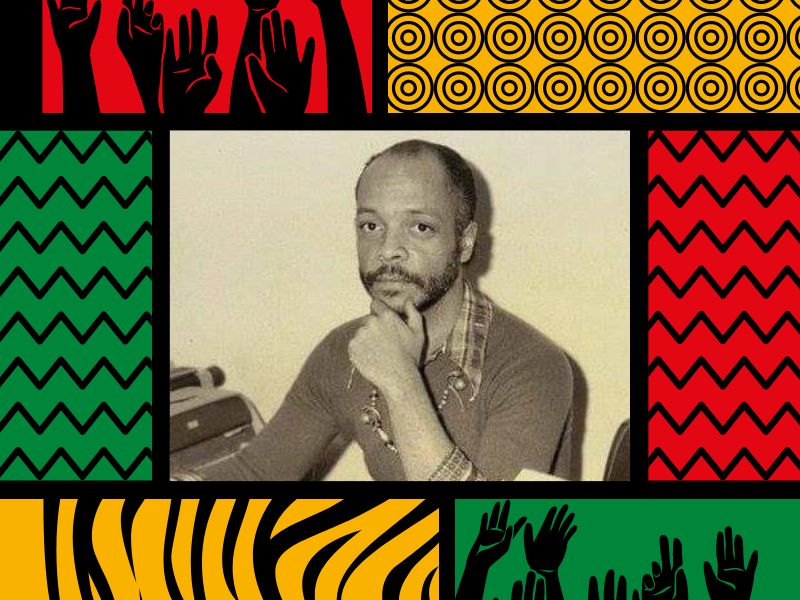
Malone’s dedication to quality comes from his early days after his birth in Pittsburgh in 1943. It stems from being accepted into Georgetown University at the age of only 16, a major in French guiding his steps to tap dance under the care of Josephine Baker while studying at the Sorbonne. Choreographing for Broadway productions and more. Bringing the gifts of those trips back to Chocolate City, finishing school and earning a master’s degree from Howard University. Starting theater companies that transformed the city, Black actors, and the youth. Serving as a founding member of DC Black Repertory Company. Alongside Peggy Cooper Cafritz, founded youth arts programs that turned into Duke Ellington School of the Arts.
As the play moves on he shifts the shows and expands the stages and the casts as they go from DC to Tokyo, bringing Dreamgirls to a new set across the world, reimagining the poetic melodies of James Weldon Johnson in God’s Trombones, excursions to produce in Ohio and across the United States, reigniting Black Nativity for new generations with awards and accolades on repeat at The Kennedy Center. The musicals seem endless as he directs them with his relaxed yet firm style; some jokes, sarcasm, and laughs intertwine with the focus, but grace is always on the plate. An inner spirit of genius fuses with his education and passion and anointing and enchants us through musical theater.
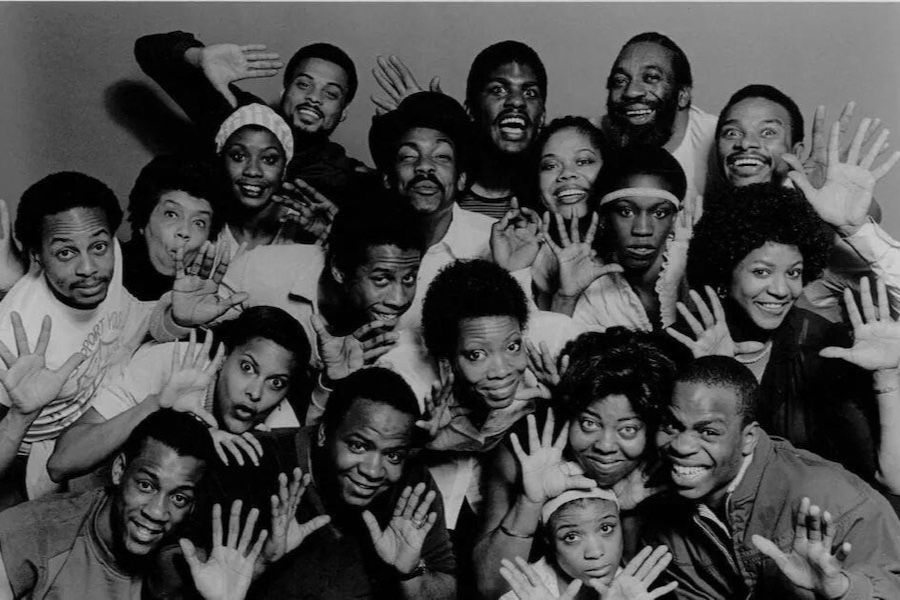
A pause, a breath, to take in what he means with lines and words directly from a few of the many lives he touched in DC…
Reflections

Denise Saunders Thompson (Assistant Dean for Administration, Chadwick A. Boseman College of Fine Arts at Howard University)
Mike Malone is legendary. His legacy is still with us because there are so many of us who have been impacted by all that he shared and provided to us as young people and as artists in development. His contribution starting with the Duke Ellington School. His partnership with Peggy Cooper Cafritz was just a starting point. With the DC theater scene specifically, he utilized musical theater to change the landscape of young Black artists in the city. The standard that you saw from those young people (and I was one of them,) Mike did not accept anything less than the best [she laughs a bit while reminiscing; you can hear the smile through her words]. There was no question about it! He would make you, he would Maker you…embody the practice of your discipline like no one else [thinks, a pause]. Yeah, it was a thing! Even at Howard as a student, the musicals that we did were always considered on the professional level by the audiences who would come. We were students! His impact, his expectation, the level of respect we had for him — he made you respect the craft and ultimately you respected Mike Malone; there were no ifs, ands, or buts about it [a full laugh], there just wasn’t. When I had the opportunity to come back as a professor and work for him as his manager with The Mike Malone Group presenting Black Nativity at The Kennedy Center, I mean again, he didn’t skip a beat! From professionals, he demanded nothing but the best and he expected you to come in, be prepared, do the thing, right [a pause for acknowledgment], and do it full-out all the time. There was never an opportunity for you to present less than. It was always full-out and always at the top of your game, and that was just on every level, working with young people, working with professionals, working in the studio, in rehearsal. That’s what it was, period!
Y’Anna Crawley (Award-winning recording artist and actress)
I remember him being passionate about his craft and pulling that same passion out of those he saw had it!
Mary Pat Cooney (A student of the Workshops)
Mike Malone was a teacher at Gonzaga College High School. I heard that he and Peggy Cooper created a summer program called Workshops for Careers in the Arts, and I asked my mother if I could apply/attend. She agreed, and with teacher recommendations, I was accepted. Shortly after, I embarked on a summer of classes that would change my life. Workshops for Careers in the Arts conducted an all-day roster of classes in theater, dance, and visual arts for the summer. My first Jazz teacher was a student at Howard University. She was full of personality, tons of fun, and knew how to give corrections in a way that a teenager would snap into focus. She had a big blonde afro, and a voice to go with it. I loved what I learned and I loved the dancing we did with her. You might have heard of her — her name is Debbie Allen. The deep power of the Workshops for Careers in the Arts, which was a pilot program for the development of the Duke Ellington High School for the Arts, prepared me for four years at Ohio University, where I pursued my BFA in Dance. To fully describe the impact that Mike Malone had on young artists would take a platoon.
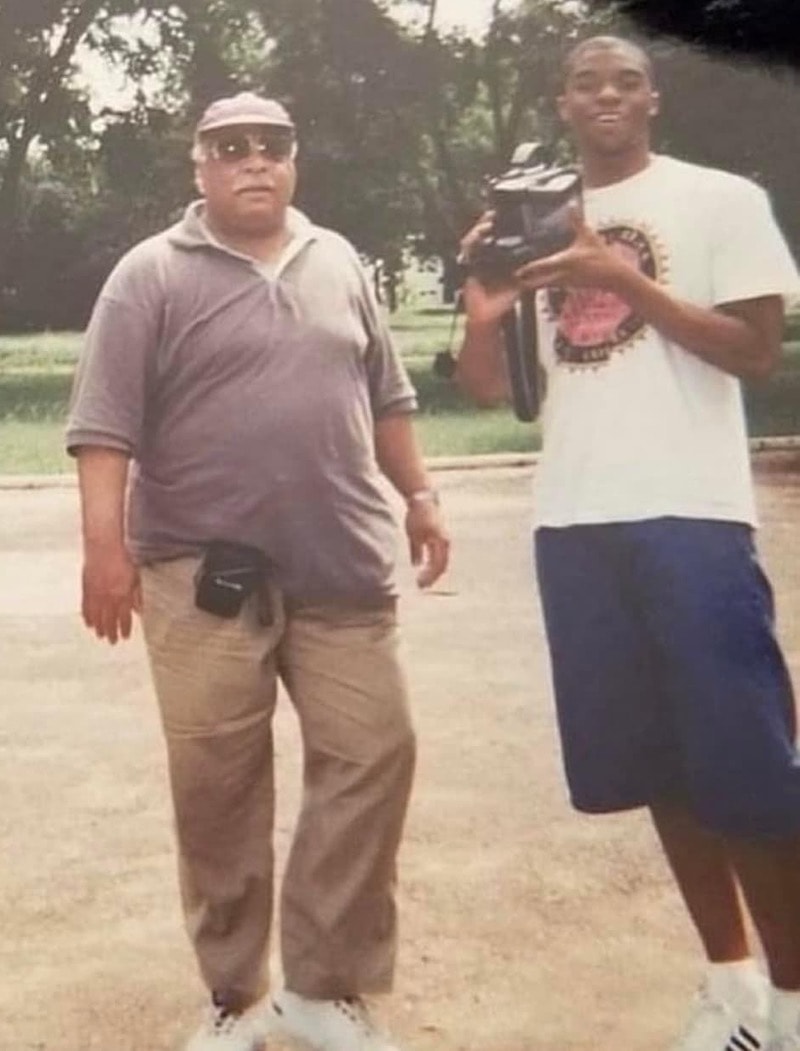
Frenchie Davis (Vocalist.Thespian.Educator)
Mike Malone changed my life the moment he entered it. I never knew the option to study Musical Theatre in college was a thing until I met him. I met him my freshman year at Howard University when I was torn between studying English or Music. He convinced me to audition for the school musical that year and I ended up being cast in one of the lead roles. I changed my major shortly after. He taught me to believe in my ability. He taught me to be honest with myself about areas that needed improvement and he taught me to believe in me. I think of him and his teachings every single time I’m cast in something. I truly miss that man and his smart mouth. [She lets out a laugh and smiles.]
Courtney Baker (Co-Founder, Restoration Stage & Film | Corporation Filmmaker | Producer | Songwriter | Arts Educator)
When I was 17, silly, and singularly unfocused about the future I could see for me, I met a man called Mike Malone who changed everything. This prince of a man who was beautiful and creative and possessed by a deep, broad intelligence challenged me as no other person ever had. As the ancestors had called on him, Mike called on me to use the talents and intellect given me for a higher purpose. That purpose was the creation of art that told the stories of Black people. And through him, and the the example he set, I fell in love with the work that is my life’s blood today. And I thank him. Mike was more than my mentor — he was my dear friend and my teacher when I needed to be taught. So I followed in his footsteps. I am so grateful to have had such an engaging, witty, and spiritually connected guide. You see, there weren’t many examples for a guy like me. Too refined by breeding to be “cool,” Mike and his work were the kind of indescribable “hot” that didn’t need to change with the times. His work reached back to the ancestors and brought them all the way through to the 21st century and never apologized for being Black, or special, or different, and absolutely fabulous. I wanted to be like Mike!
Folami (International entertainer)
Unbeknownst to me, Professor Malone saw beyond the surface and understood my true potential, becoming a guiding force in my journey of self-discovery and foresight into the future. I found myself repeatedly absent from the cast lists of leading roles. It puzzled me over the years, and the comments from others only fueled my confusion. “Folami, you’re destined for the lead in this show,” they would say. The mystery persisted until Professor Malone, accompanied by Professor Reggie Ray, head of the costume department, decided to address it. “Folami?” Professor Malone’s voice rang out with a grin, “Do you ever wonder why you never get the lead roles?” The question hung in the air, and I nervously shook my head in fear of the forthcoming revelation. Yet, as the truth unfolded, it became a pivotal moment of enlightenment. “It’s because you don’t want it,” he declared. Though the response was unexpected, it triggered a profound introspection. Professor Malone’s approach became clear—he reserved leading roles for those who truly desired them. This insight reshaped my perspective, and with newfound determination, I eventually secured a role tailored for me. His legacy endures as a testament to the transformative power of mentorship, fueling my commitment to excel in every role I undertake, ensuring that his influence continues to thrive in my artistic endeavors.
Steven A. Butler Jr. (Actor/Screenwriter/Producer)
Mr. Malone took the time to inquire about myself and why I aspired to be in his show. Mr. Malone demonstrated a genuine concern for his students, investing time to understand our needs as artists and providing it to us, even if what we required was the unvarnished truth. Despite my initial uncertainty, I managed to secure a role in Mr. Malone’s show. Working with him had a profound impact on my life, both personally and professionally. I cherish the positive impact he has had on my journey as an artist.
Luqman Salim (Costume Designer and make-up artist whose costume designs for One Mo’ Time were recently seen at Anacostia Playhouse)
There are soooo many stories I remember about Mike — for example, do you [LeeAnét] remember working at The Carter Barron for the summer youth program and Mike Malone used Stevie Wonder’s “I Wish” to open the show? He had a whole combination of things going on at one time and had you in the middle tap-dancing your behind off like Gregory Hines, which was a nostalgic moment for me because I just couldn’t believe all the combinations that he had on that stage with that one song, and had you in the middle tap-dancing your face off! It blew me away! Also, spending my last days with him taking care of him and watching him direct his last play, which was Black Nativity, his baby. They had been having problems in that show for six months, and Mike Malone came in and got that show together in 30 minutes. This man has sat in discomfort for three hours to make sure that that show was up the way he wanted it to be, and that’s when I realized that directing plays was his passion.
Danielle K Thomas (Actor/singer/dancer; Broadway, television, film)
What can I say about my Papa? It was always a masterclass just being in the presence of Mike Malone. It just felt like everything he said or did came with so many layers and depth and insight. He would say something like “The way you entered the stage just know, your body and movement told this story… Why? Let’s try to enter again telling this story.” If that makes sense. The man could choreograph a whole number sitting down at a table, using his hands, and it would become the most brilliant number in the show. You always, I always, wanted to get his approval, because if he was pleased with your work that meant something! I will never forget one day after a show rehearsal as I sat with him getting notes and talking about what we’d be doing next, he said to me, “You have really good instincts. You should trust them and then lean into them.” And I kid you not, it was like at that very moment something clicked for me. I gained unshakeable faith and confidence in myself. I started to believe that anything I set out to do, once I committed to it and leaned into it, I couldn’t do wrong. It has made me the artist that I am today. I owe that to Mike Malone and that one statement that he said to me. Those words that let me know that he saw me, and he approved, and that meant so much. It meant everything to me, because of how much I respected him. And because of the proof of his expertise that I was privileged to witness and/or be a part of.
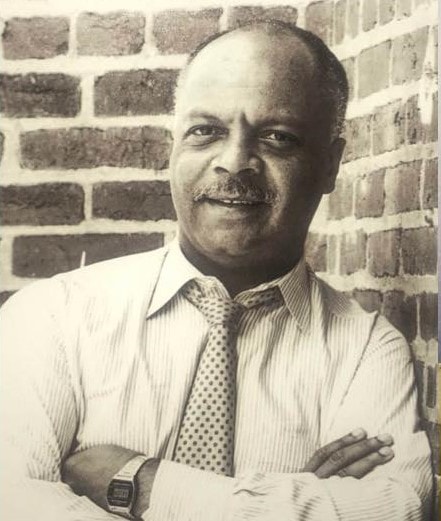
Mike Malone exits the stage, yet the actors and artists continue with his direction and inspiration. The light flickers.
SEE ALSO:
Speak the names, tell the stories (part 1): Shining a light on DC theater history
Speak the names, tell the stories (part 2): Dr. Kelsey E. Collie, pioneer of children’s theater in DC
Speak the names, tell the stories (part 3): The DC Black Repertory Company
Speak the names, tell the stories (part 5): LaVerne Reed, founder of the LaVerne Reed Dance Company


